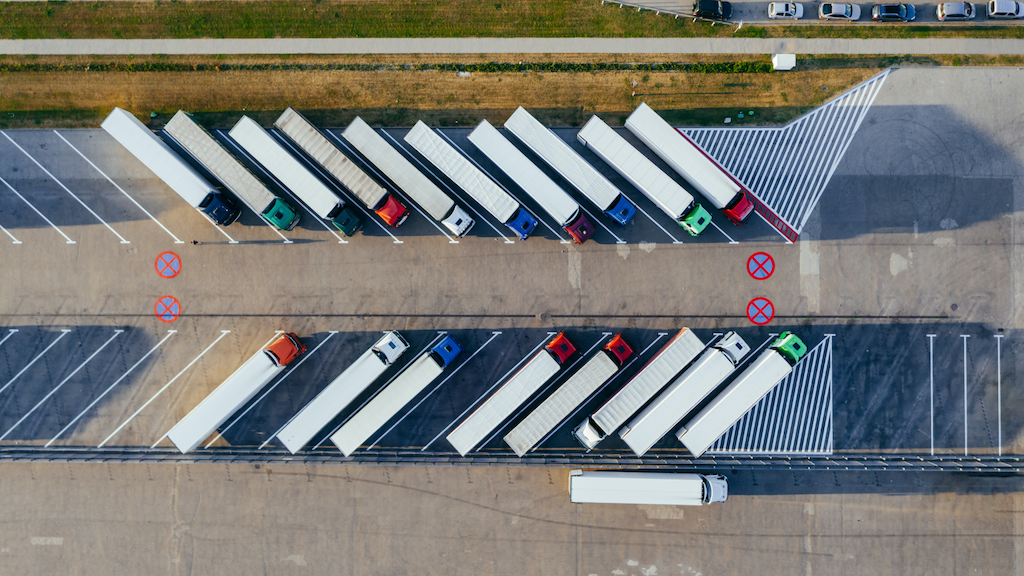The logistics industry is concerned with managing the acquisition, storage and delivery of resources to their final destination. Such a system has existed since ancient times, since the movement of products and services has always been in demand.
Although the industry has evolved and become more efficient in delivering products and services, the recent pandemic and the growing power of consumers demonstrated that there is still a need for innovative solutions in logistics.
Some of the common challenges in the logistics industry are:
- Reducing transportation costs
- Improving customer service
- Theft
- Sustainability
What if there was a single solution that could help companies overcome these challenges? The truth is that Artificial Intelligence is a perfect complement for the logistics industry not only to overcome challenges but also to improve and boost its operations.
Due to the amount of data that is generated at each stage of the supply chain process, such as from product production to shipment to sale, AI can serve as a powerful tool for the industry.
Let’s find out what are the main use cases for AI in logistics and how important it is for the industry.
Demand forecasting

We know that when it comes to production, resources are limited. That is why it is important to predict the exact demand for your product.
Demand forecasting helps companies to have a clear expectation and, based on that expectation, establish adequate stock levels and price the product correctly.
With the help of machine learning (ML) and AI, companies can analyze a large amount of information related to historical sales data, customer data and at the same time process other types of data in real-time, such as current discounts, trends and changes in income.
Machine learning algorithms increase the accuracy of demand forecasts by finding complex, non-linear relationships in huge data sets that no human could process in such a short time.
The implementation of AI solutions for demand prediction significantly reduces the risks of:
- Lost sales
- Product spoilage
- Extra operational and personnel cost
- Excess/shortage of stocks
Warehouse Automation
Intelligent automation and robotics are one of the most valuable features that AI offers to the logistics industry.
Artificial intelligence systems free warehouse personnel from repetitive and perhaps dangerous tasks by automating the process and providing greater speed and precision.
Smart warehouses using artificial intelligence automation are more productive and can operate 24/7, which would be very expensive and hardly possible in the case of only human labor.
For example, since Amazon automated most of its warehouse operations, its team doesn’t have to go through the tedious and boring task of moving a cart full of products, placing them on shelves, and scanning them to mark their location in a system.
Now all these tasks are handled by intelligent robots that perform the job faster and with greater precision, eliminating human error.
AI + IoT sensors
With the help of AI and IoT sensors, companies get a bird’s-eye view of all their operations.
IoT sensors can track the shipment status of each product, the condition of equipment and machinery, the temperature of facilities, and many other details that help managers understand the efficiency and state of their supply chain operations.
AI technologies, on the other hand, use IoT data, analyze it, and provide tips and advice.
For example, by acquiring data from IoT sensors about equipment load and weather conditions, AI systems can estimate when maintenance will be required to avoid machinery downtime.
AI route optimization

Fast and cost-effective delivery is very important in logistics because if managed incorrectly, it can cause unnecessary expenses.
AI can analyze all related data affecting freight transport and based on this data find the best possible route for fast delivery in real-time, such as weather conditions, traffic congestion, vehicle speed limit, etc.
Based on this data, artificial intelligence systems can find the best possible route for the fastest delivery in real-time.
Shorter routes are a more environmentally friendly approach, as they reduce vehicle emissions and prevent cars from releasing harmful particles.
AI theft prevention
Another way that AI can ensure that logistics operations run smoothly is by ensuring security.
By having access to data such as:
- The hotspots where thefts occur
- The types of goods that are stolen the most
- The period of the day when the crime occurs most frequently
- Thousands of hours of real and simulated images of the theft
Machine learning algorithms can analyze all information and warn companies of theft risks, provide real-time alerts, and suggest safer alternative routes.
AI-powered security alerts have become critical for logistics companies as cargo theft continues to be a huge problem affecting both consumers and businesses.
Customer service

Just as in any industry, customer satisfaction is a priority, the logistics sector is no exception. The elements of customer service in logistics include order fulfillment, fast delivery, quality products, etc.
In the previous points, we saw how AI solves some of these elements; However, another way that AI improves customer service is with smart chatbots and personalization.
Chatbots are available 24 hours a day, 7 days a week, which means that customers will not have to adjust to the standard business hours of the company and can send their inquiry whenever they want.
With the help of such automated systems, customers can quickly get assistance on delivery requests or information on the shipping status of their packages.
Accelerating responses and assistance to customer requests is a great way how artificial intelligence helps the logistics industry improve its customer service.
Conclusion
As AI is becoming more popular in logistics, more and more companies in the industry will implement the technology in their day-to-day operations. in fact, the market size for AI in the logistics and supply chain is expected to reach $ 12 billion by 2027.
Increased adoption of AI in logistics means we could see some innovative and groundbreaking AI use cases.
If you find the above-mentioned use cases interesting for your business and would like to understand how AI can benefit your specific use case, schedule a free consultation call with our experts and let’s discuss the topic in more detail.








